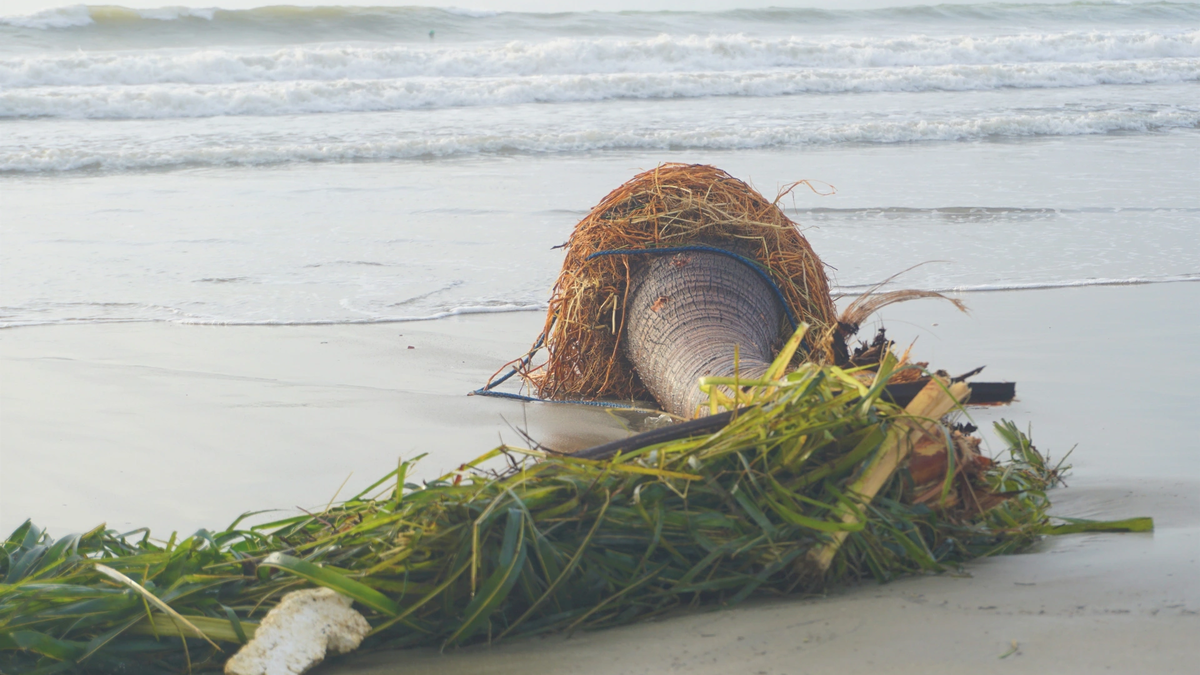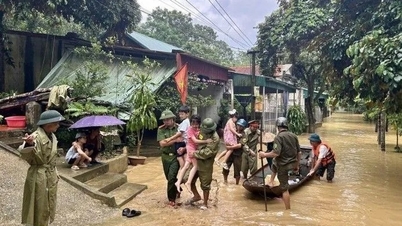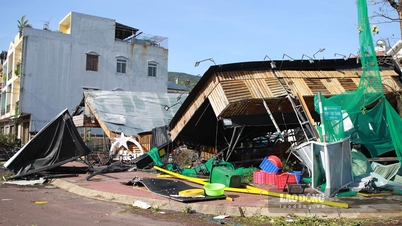This was a special flight because the two patients were being treated from two different islands, so it required extremely close coordination between the on-site treatment and the Air Rescue Team of Military Hospital 175 , especially during the transportation process to ensure the highest safety for the patients.
Specifically, at 1:00 a.m. on October 22, 2023, fisherman NS, born in 1984, after diving 30m deep for 120 minutes, came ashore and felt very tired, had muscle pain in both legs, was dizzy, and had difficulty urinating. At about 4:00 a.m. the same day, NS dove into the sea to re-increase pressure for about 4 more hours. When he returned to shore, his condition did not improve, so the patient decompressed himself on the boat by diving in a water tank from 8:00 a.m. to 12:00 noon, when his condition worsened. The patient was taken to Song Tu Tay Island Infirmary at 3:25 p.m. the same day. Song Tu Tay Island Infirmary quickly consulted with doctors from the Naval Medical Institute, 108 Central Military Hospital, and 175 Military Hospital and concluded: Decompression sickness due to diving 30m deep in the 18th hour was severe, with multiple organ air embolism. The prognosis was very serious and beyond the treatment capacity of the island's military medical staff, so the doctors decided to transport the patient to Military Hospital 175 for timely treatment.
During the flight to Song Tu Tay Island to transport the patient, the Air Rescue Team received an order from the Head of the Ministry of National Defense to transport another patient with multiple injuries. The patient was intubated, put on a ventilator and transported with patient NS on a flight back to the mainland for treatment.
Senior Lieutenant, Doctor Nguyen Van Nghia - Doctor of Intensive Care Department, Military Hospital 175 - Head of the Air Rescue Team said: "The most difficult thing in this rescue flight is having to move through 2 different islands, the patient also has to participate in the take-off and landing process many times, specifically 3 times and each time due to changes in pressure, there is a risk of re-forming air bubbles in the blood vessels, making the embolism of the patient with decompression sickness worse. The second thing is the equipment for transportation, when receiving the order to fly to Song Tu Tay Island to pick up the patient with decompression sickness, although the rescue team had prepared equipment for the worst case scenario, however, ensuring equipment for the second patient was a challenge for the flight crew, especially medicine and oxygen for transportation. In addition, bad weather conditions, heavy rain affected the flight crew and the Rescue Team as well as the patient's condition. The last thing is to ensure fuel for Flights and planes had to refuel at Truong Sa island, which also affected the time it took to transport patients to Military Hospital 175.
Currently, the patient's vital signs are stable. Immediately after being transferred to Military Hospital 175, the patient was taken to the Emergency Department, where a hospital consultation was conducted for further treatment.
Source






![[Photo] Da Nang: Hundreds of people join hands to clean up a vital tourist route after storm No. 13](https://vphoto.vietnam.vn/thumb/1200x675/vietnam/resource/IMAGE/2025/11/07/1762491638903_image-3-1353-jpg.webp)


































































































Comment (0)